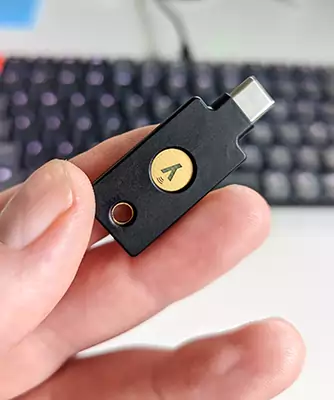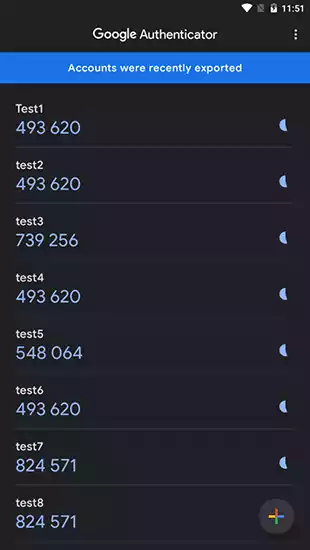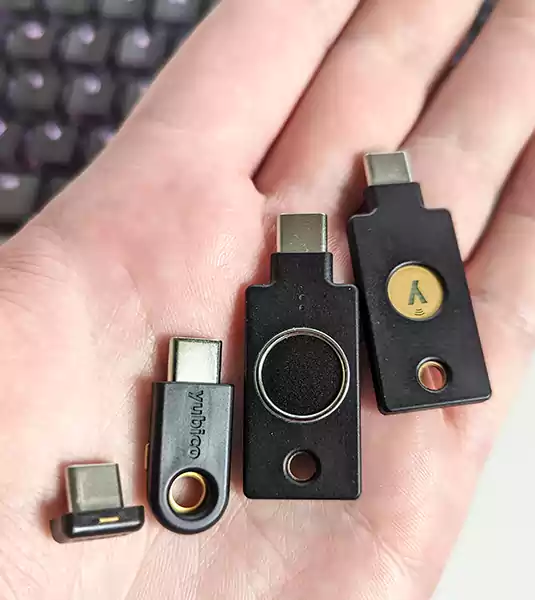In today’s digital age, protecting your online accounts from hackers and cybercriminals is more important than ever. One of the best ways to do this is using two-factor authentication (2FA) combined with strong, unique passwords for each account.
Even if a hacker manages to obtain your password through phishing or other methods, 2FA adds an extra layer of security that makes it much more difficult for them to access your account.
In this blog post, I’ll explain why 2FA and unique passwords are so important and discuss the different types of 2FA available, their benefits, and their drawbacks.
Importance of strong, unique passwords.
Passwords are not as secure as we think they are. Hackers and cybercriminals use various methods to obtain passwords, such as phishing, keylogging, and dictionary attacks.
The ease with which a hacker can break a password depends on several factors, including the complexity and length of the password and the methods used by the hacker.
Simple, short passwords can be easily cracked using basic tools found on the internet, while longer and more complex ones can take significantly more time and resources to break. Once they have a password, they can access your account and steal your personal information.
To protect your accounts, it’s essential to use strong, unique passwords for each of your accounts. This makes it much harder for a hacker to crack your password and gain access to your account.
How to create strong, unique passwords.
One way to create strong, unique passwords is to use a password manager, such as 1Password. Password managers can generate long, random passwords for each of your accounts.
Creating a Strong Password:
- Length: A password should be at least 12 characters long to provide a sufficient level of security. The longer the password, the stronger it is. Personally, I don’t use passwords shorter than 15 characters.
- Complexity: Use a combination of uppercase and lowercase letters, numbers, and special characters. Avoid using easily guessable information such as your name, address, or birthdate.
- Uniqueness: Use a different password for each account to prevent a breach on one account from compromising all of your accounts. (1Password may help with this).
Types of passwords:
- Random password: A password that is generated using a random combination of letters, numbers, and special characters, such as “g#5$tRfVbNmZq3x”.
- Passphrase: A password that combines multiple words, such as “CorrectHorseBatteryStaple”.
- Mnemonic passphrase: A password based on a phrase or sentence that is easy to remember, such as “My dog name is Molly.”
- Personal Information-based password: A password based on personal information, such as “MyBirthdayIs0922”.
- Alphanumeric password: A password that combines letters and numbers, such as “T3stP@ssword”.
It’s important to note that using personal information-based passwords or easily guessable Passphrases is not recommended, as they can be easily cracked.
It’s better to use a random password generator or a password manager like 1Password to generate and store complex passwords for you.
I use my favorite 1Password to generate long random passwords for each account. This makes it much harder for a hacker to crack your password and protect you if one of your accounts is compromised.
Password managers can automatically generate strong passwords for you, store them securely, and even enter them when you log into your accounts.
Why is 2FA important?
Two-Factor Authentication adds an extra layer of security to your accounts by requiring you to provide a second form of authentication, such as a fingerprint, a code from an authenticator app (Google Authenticator), or a physical security key like my YubiKey 5C NFC.
This makes it much more difficult for cybercriminals to access your accounts, even if they have your password.

Benefits of 2FA:
- Prevents unauthorized access: 2FA ensures that only you can access your accounts, even if your password is compromised.
- Protects sensitive information: If you have sensitive information, such as financial or personal information, 2FA can help protect it.
- Widely available: 2FA is available on the most popular websites and services, including Google, Facebook, Twitter, and many others.
Drawbacks of 2FA.
- Dependence on a secondary device: To use 2FA, you need to have access to a secondary device, such as your phone, to receive the authentication code.
- Compatibility issues: Some websites and services may not support all types of 2FA. This can limit your options and make using 2FA on your accounts more difficult.
- Usability concerns: Some users may find the added steps of 2FA to be a hassle or may have trouble setting it up correctly.
- Cost: Some types of 2FA, such as hardware tokens, can be expensive to purchase and use.
- Limited access: In some cases, 2FA may not be available in areas with limited internet connectivity, making it difficult to access your accounts.
Types of 2FA.
- Hardware token: such as a Yubikey. A small device that you can plug into your computer or phone. The most secure method of 2FA but also the most expensive and less common.
- SMS-based 2FA, where a code is sent to a user’s mobile phone via text message and entered into the login page to verify their identity. Convenient and widely supported but not the most secure. SMS messages can be intercepted, and phone numbers can be spoofed.
- Time-based One-time Password (TOTP) 2FA, where a code is generated by an app on the user’s device, such as Google Authenticator. More secure than SMS-based 2FA but requires you to have your phone with you at all times.
- Hardware token: such as a Yubikey. A small device that you can plug into your computer or phone. The most secure method of 2FA but also the most expensive and less common.
- Biometric 2FA uses fingerprints or facial recognition to verify the user’s identity.
- Push-based 2FA, where a notification is sent to the user’s device, and the user confirms the login.
How to Use 2FA.
To use 2FA, you need to enable it on your accounts. Most websites and services offer 2FA as an option in their security settings. You can use an authenticator app, such as Google Authenticator or Authy, or a physical security key, such as a YubiKey.

Once you have enabled 2FA, you will be required to enter a code from your authenticator app or insert your security key when you log into your accounts.
This ensures that only you can access your accounts, even if your password is compromised.
Additionally, using a password manager can help you keep track of all your 2FA codes, making it easier for you to log into your accounts.
My approach to 2FA.
I use both Google Authenticator and Yubikey for my most important accounts. Combining these methods provides the best balance of security and convenience.
For example, I use Google Authenticator for my email and social media accounts, as these are less sensitive and do not require the same level of security as my bank account or other financial accounts. For these more sensitive accounts, I use Yubikey 5C NFC for an added layer of security.

Conclusion.
Using 2FA in combination with strong, unique passwords is crucial to protect your online accounts from hackers and cybercriminals.
Passwords can be stolen through phishing scams, keyloggers, or other methods. And even if you use a strong, unique password, it can still be cracked through dictionary attacks or other ways.
2FA is much harder to break than a password. The algorithms used for 2FA are incredibly complex and secure, making it nearly impossible for a hacker to break them.
Using a password manager like 1Password to generate and store long, random passwords for each of your accounts is a great way to ensure that you use unique and strong passwords for all your accounts.
Remember, a strong password alone is not enough to protect your account. 2FA is the best defense against hackers and cybercriminals.
Don’t wait to implement 2FA for your accounts; the more you wait, the more you expose yourself to potential threats.
